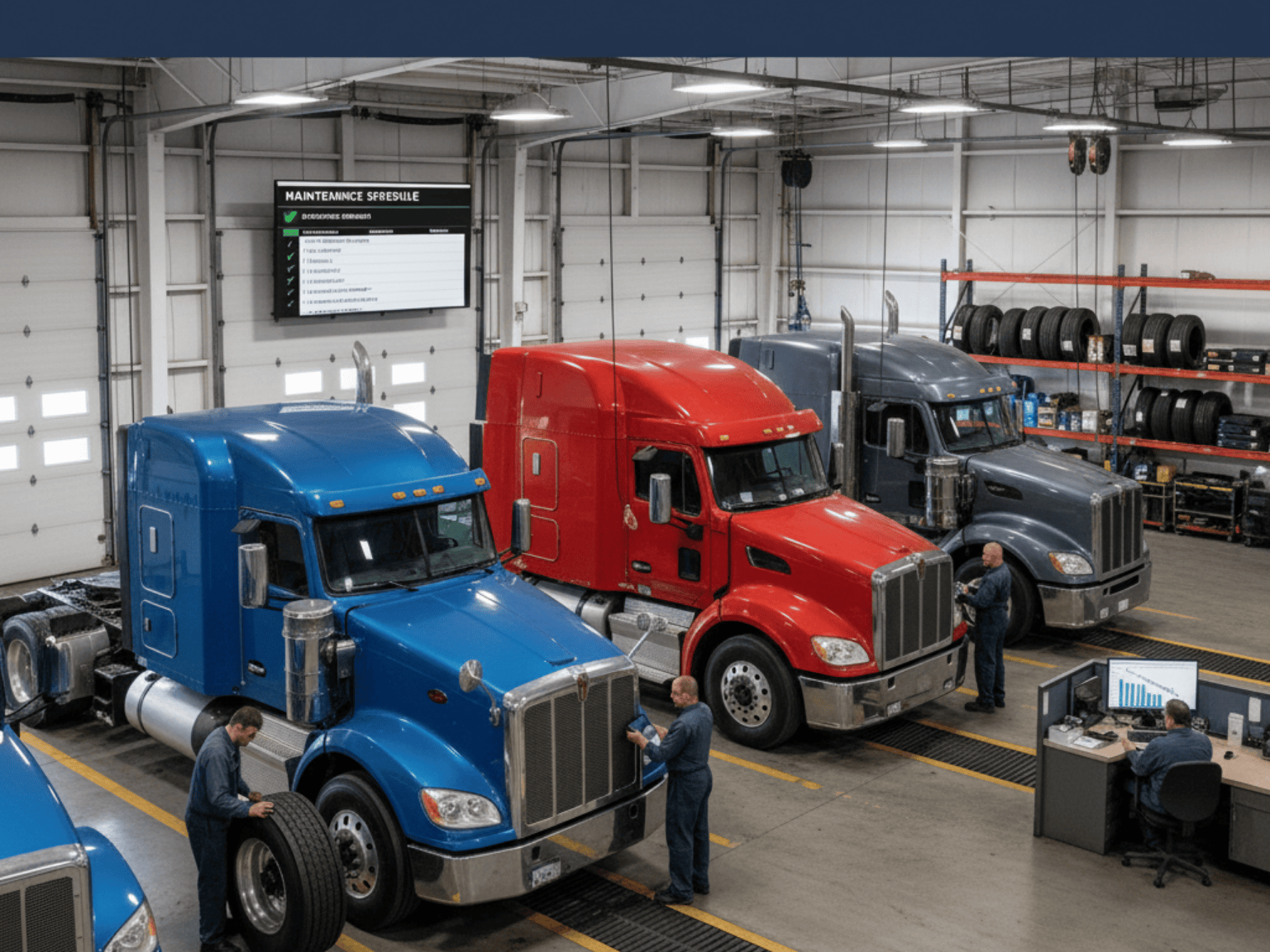Sep 11th 2025
For any trucking company, the bottom line is directly tied to the performance and reliability of its fleet. While the upfront costs of a regular maintenance schedule might seem like a significant expense, they are a powerful investment that directly drives down two of the biggest costs in the industry: commercial truck insurance and safety-related expenses.
Neglecting regular upkeep for your semi and heavy-duty trucks can lead to a dangerous and expensive cycle. A minor issue that could be fixed with a quick trip to the mechanic can turn into a major breakdown on the road. This not only causes lost revenue from missed deadlines but also dramatically increases your risk profile. The result? Higher truck insurance premiums and a greater chance of a catastrophic accident.
How a Maintenance Plan Lowers Your Commercial Truck Insurance Rates
Insurance providers see well-maintained fleets as a lower risk. When you have a documented history of regular inspections and repairs, you are demonstrating a strong commitment to safety and proactive risk management. This can lead to significant discounts on your commercial truck insurance premiums. Here's why:
- Fewer Accidents, Fewer Claims: A properly maintained truck with new truck parts like brakes, tires, and lights is less likely to be involved in a mechanical-failure-related accident. Fewer claims on your record mean lower rates and a better reputation with your insurer.
- Demonstrated Responsibility: A robust maintenance log shows that you're not cutting corners. This can make your company more appealing to insurers, who may offer more favorable terms and rates.
- Compliance and Safety Scores: Regular maintenance is essential for meeting federal and state regulations. A clean safety record with the DOT, which is a direct result of proper vehicle upkeep, is a key factor in keeping your truck insurance costs in check.
The Direct Link Between Truck Parts, Safety, and Savings
Beyond insurance, a proactive maintenance plan saves money by preventing issues before they occur. The cost of a new truck part—like a worn-out belt or a faulty sensor—is a fraction of the cost of a complete engine failure or a roadside breakdown.
- Proactive vs. Reactive Repairs: Fixing minor issues during scheduled maintenance is far cheaper than paying for emergency towing and rush repairs.
- Increased Vehicle Lifespan: Regular upkeep extends the life of your fleet. By replacing key truck parts on schedule, you protect your valuable assets and delay the need for expensive vehicle replacements.
- Improved Fuel Efficiency: Properly inflated tires, a clean air filter, and a well-tuned engine are all results of regular maintenance. These simple steps can lead to better fuel efficiency, saving you thousands of dollars in fuel costs over the long run.
In conclusion, a regular maintenance schedule isn't just a cost of doing business; it's a strategic move that saves money on commercial truck insurance, reduces the risk of accidents, and keeps your fleet running safely and efficiently. By investing in the health of your vehicles, you are investing in the long-term success and profitability of your entire operation.

